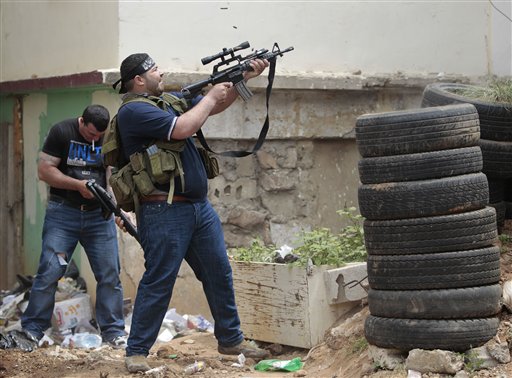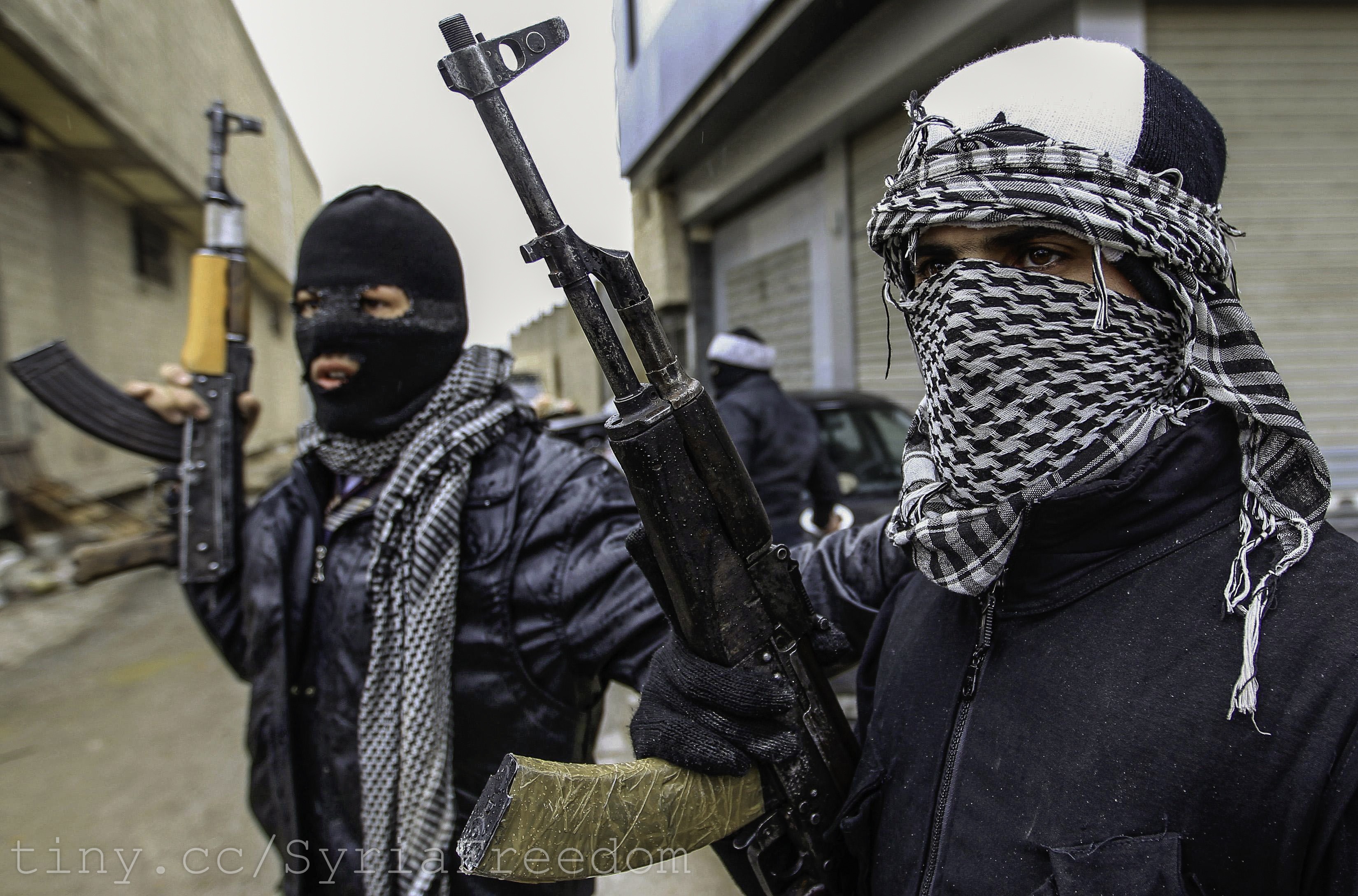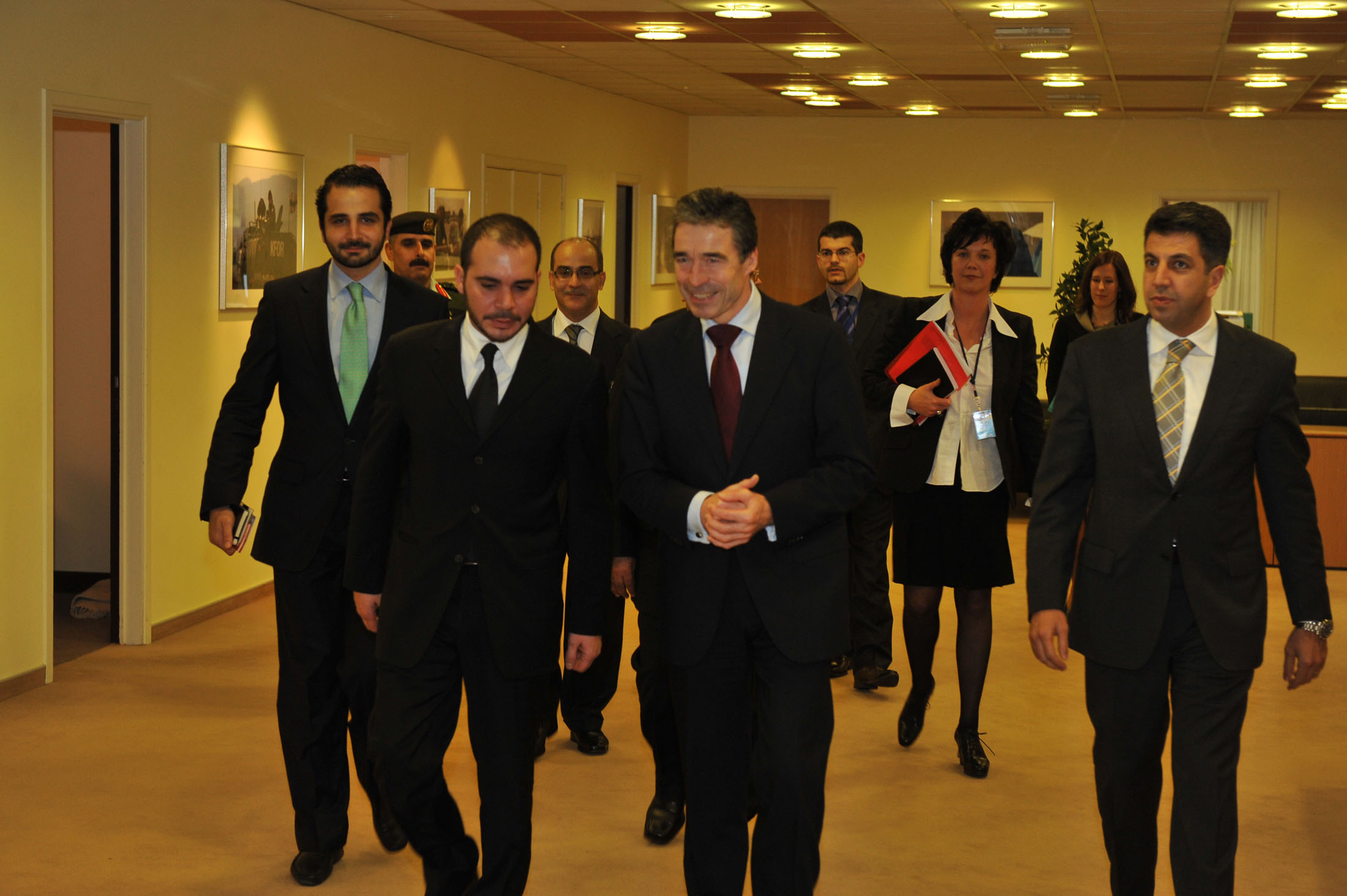[captionpix align=”left” theme=”elegant” width=”320″ imgsrc=” http://bloximages.newyork1.vip.townnews.com/stltoday.com/content/tncms/assets/v3/editorial/0/39/03913390-fe51-5b9d-bfab-5c291e1826cb/4fb11e6aa6a31.image.jpg” captiontext=” Sunni Islamists Clash with Alawites in Tripoli “]
Lebanon’s Political Structure
Beirut was once described as the Paris of the Middle East: cafes, nightlife, a place made exotic by its diverse array of cultures and religions. What had made this country so attractive to international jet setters is also what has allowed it to become co-opted by a plurality of regional and international forces. The National Pact of 1943 and the Taif Accord, which ended the country’s 15 year civil war, acted to entrench governance along sectarian lines, ensuring confessional loyalty and fostering a deadlocked political system.
This facet of Lebanese politics has allowed outside influences to manipulate sectarian groups to further their agendas, both within the country and regionally. This volatile predicament is exacerbated by the fact that the encumbered political system has resulted in the development of an excessively robust civil society. While many democracies around the world would benefit from such a high level of civic participation, Lebanon’s interest groups view the bullet as a stronger political tool than the ballot.
Violence Comes Back to Lebanon
Lebanon’s internal tensions have yet again become exacerbated by outside influences; with a foreseen spill-over from the ongoing conflict in neighbouring Syria. Lebanon’s Sunni community and their political allies have in various manners supported the current uprising in Syria: providing medical treatment, housing refugees, smuggling weapons across the border to the Free Syrian Army, and by some reports joining the armed opposition. The Sunni community, having been disenfranchised by Syrian allies, both politically and militarily in Lebanon, has viewed the Syrian uprising as a chance to shift the balance of power at home. Hezbollah, the main Shia militia, in combination with other Syrian aligned parties has in turn attempted through government structures, namely the security services, to quarantine and harass those threatening their patron in Damascus. While this strategy sufficed until last week, an increased crackdown on Sunni supporters of the uprising by security forces, a move to guerilla operations by the Free Syrian Army, partially based out of northern Lebanon, and Sunni disenchantment with the Lebanese political system have coalesced to force an all too common resort to violence.
Three events have broken the uneasy calm in Lebanon that had lasted since Hezbollah’s short takeover of Beirut in 2008. The catalyst for the most recent round of inter-communal violence was the arrest of Shadi al-Moulawi last week by Lebanon’s General Security Directorate (GSD). Supporters describe al-Moulawi as a Sunni Islamist who was aiding Syrian refugees in the northern Lebanese city of Tripoli. Now on bail, al-Moulawi was charged with having membership in a terrorist organization, while rumors were floated that he had fought against government forces in Syria. His arrest led to street battles in Tripoli between Sunni Islamists in the Bab al-Tabbanah neighborhood and gunmen in the district of Jabal Mohsen, which belongs to the Allawite sect of Syrian President Bashir al-Assad. The Lebanese Army, attempting to separate the belligerents, were fired upon by Sunni gunmen, a highly uncommon occurrence.
These tensions were further exacerbated on Sunday when an army unit, manning a checkpoint in the region of Akkar, opened fired on Sunni cleric Sheikh Ahmed Abdel Wahed, killing him and another Sunni religious official. Sheikh Wahed was a pivotal figure in the anti-Assad movement within Lebanon’s Sunni community and a member of the Western-leaning March 14 alliance. His death was interpreted by the Sunni community as retaliation for the Tripoli clashes last week. Sunnis came out in force and blocked all routes to Northern Beirut and Tripoli. That night armed men from former Prime Minister Saad Hariri’s Future Movement, the main Sunni coalition party in the March 14 alliance, attempted a take over of the office of politician Shaker Berjawi and his Arab Movement Party — a Sunni group allied with the Syrian government. When the Lebanese Army arrived in order to separate the two factions they were fired upon by Future Movement gunmen.
Politicization of the Lebanese Military: Prospects for Disaster
To understand the ramifications of the current round of violence between pro and anti-Assad factions in Lebanon, and the veracity of attacks on the Lebanese Army, it is beneficial to look at the details of the arrest of Shadi al-Moulawi. The General Security Directorate, which apprehended al-Moulawi, is led by General Abbas Ibrahim, a Hezbollah contact for military intelligence and thus an extension of the Syrian regime. In the climate of security crackdowns on groups and individuals who have aided the Syrian uprising, accusations have arisen from the Sunni community that the Lebanese government is doing the biding of Syria and its allies within Lebanon.
Unlike previous episodes of unrest and armed conflict between confessional factions, when clashes erupted in both Tripoli and Beirut the Lebanese Army became fair game for anti-Syrian gunmen. The Army had been previously viewed by Lebanese of all sectarian backgrounds as the one institution that represented a national consensus on the safety and security of the country. It was holistically viewed as a non-politicized entity that represented an ethnic and religious mosaic that all Lebanese should aspire to. Fears that the Army would once again unravel into competing militias based on confessional lines, as it had during the country’s bloody civil war, is a real and ongoing concern. Respect for this institution runs so deep in Lebanese society that violent disputes tended to cease when army units arrived on the scene.
The root cause of this paradigm shift is traced back to the way in which the Lebanese government, under the leadership of the Syrian-allied March 8 coalition, headed by Hezbollah, has dealt with Sunni support to the Syrian uprising. Prime Minister Najib Makati, a Sunni politician and member of the March 8 alliance, has forwarded a policy of neutrality concerning events in Syria in an attempt to appease both his Sunni constituency and his pro-Syrian coalition members. Under pressure from Syria, including threats of military involvement in northern Lebanon, Mikati has allowed Hezbollah and pro-Assad groups to employ their proxies within the Lebanese Army and security services in order to stop Syrian opposition activities in Tripoli and the surrounding area—the arrest of Shadi al-Moulawi being one of many operations. This has allowed for the politicization of the country’s armed forces, which through these activities are taking a hard stance against Sunni support for their co-religionists across the border.
Throw in the perceived (or possible) assassination of a vehemently anti-Syrian Sunni cleric by Lebanese soldiers and the recipe for a total breakdown of confessional relations is complete. Thus, the Sunni-on-Sunni clashes in Beirut must be viewed as a retaliatory gesture that included an attempted payback against the Lebanese Army. The anti-Assad Sunni constituency now views the Army as part and parcel of Syrian and Hezbollah attempts to meddle in the domestic affairs of the country. Various Sunni leaders have echoed this view with Future Movement MP Khaled al-Daher stating that, “These is no confidence in the Lebanese army,” a shocking statement by a mainstream politician. The most disturbing rhetoric has come from Salafist leaders including Sheikh Ahmad Rifai, who called for the creation of a Free Lebanese Army, and Sheikh Bilal al-Masri who argued that, “The army has taken the side of the Alawites. The officers are all Shiites.” Such propaganda and the pandering of these clerics to confessional sympathies represent a shift in political rhetoric that may lead to increased tensions.
Possible Ramifications
While the probability of the creation of a Lebanese Free Army is highly unlikely, the disdain for the armed forces should be taken seriously. As the Army has played a peacekeeping role between rival militias, one which is based on impartiality, the loss of support among the Sunni population is highly troubling. It is quite possible that the Army can no longer act in this fashion given that its involvement has resulted in violent reactions by Sunni militias.
This means that there is a lack of a neutral party with the ability to separate warring factions and enforce the peace—for the mere involvement of the Army now delegitimizes its role. In this volatile climate characterized by pro and anti-Assad clashes, assassinations, and protests, it could quite possibly lead to a security vacuum. As stability in the country depends on two factors: the Army`s role in dividing warring factions; and the ability of confessional elites to control their constituents — the loss of the former safeguard has resulted in the political balance resting solely on the leadership of each community.
It is highly concerning when taking into consideration that one of the main facets in the breakdown of state control during the country`s 15 year civil war was the loss of army legitimacy, and the resulting defections to sectarian militias. In the current crisis this dynamic would be exacerbated if pro-Syrian leaders, including Hassan Nasrallah of Hezbollah, react by tightening their control over the army, police, and intelligence services, as at least one observer posits.
For now Hezbollah has taken a quietist approach to the ongoing crisis, with Nasrallah appealing for calm after Shiites took to the streets of Beirut to protest the kidnapping of co-religionist Lebanese pilgrims by Syrian rebels this week. While the Shiite and pro-Syrian elites seem to have control over their supporters, the same cannot be said for those within the anti-Syrian camp. Both the violence in Tripoli and the reactions of Sunni militiamen to the involvement of the Lebanese Army in last week`s clashes showcase that the Sunni elites are unable to fully control the actions of their armed co-religionists.
As traditional leaders lose sway within the country, and Islamist leaders use the latest violence as a pulpit to spew sectarian rhetoric, Sunni radicalism and vigilante actions could have an adverse affect of dragging the Paris of the Middle East into another bloody sectarian conflict.



